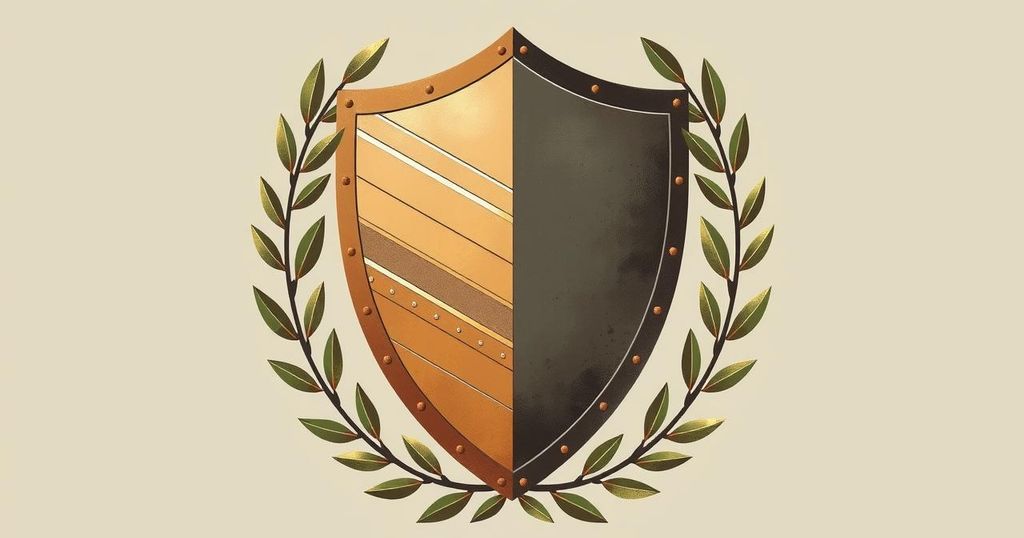Iran’s regime faces escalating repression to preserve its power amid economic turmoil, as shown by increased anti-regime activities and international sanctions. Panama’s crackdown on sanctioned ships, U.S. Treasury actions against Hizballah networks, and political prisoners’ plight demonstrate ongoing human rights violations and resistance against oppressive measures. These developments signal the urgent need for global attention on Iran’s political landscape.
In the current landscape, Iran’s regime faces significant external and internal pressures, leading to heightened repression as officials work to maintain power amidst an economic crisis. Senior officials, including former National Assembly Speaker Nategh Nouri, have openly discussed the risks to the regime’s stability since 2018, marking a trend toward suppressing public dissent. Historical context reveals that repression is not new; the regime has a legacy of controlling opposition that dates back to the Pahlavi era.
Recently, Panama’s Maritime Authority revoked the registration of 128 ships, targeting those in the shadow fleet associated with Iran and Russia. This decision aligns with global efforts to uphold sanctions against these nations, reaffirming Panama’s commitment to compliance amid growing international scrutiny. The registration deregistration process has become significantly expedited, highlighting Panama’s intensified regulatory approach.
In Washington, the U.S. Treasury’s Office of Foreign Assets Control designated several individuals and companies linked to a Lebanon-based sanctions evasion network supporting Hizballah. This network facilitates revenue generation through oil smuggling operations in cooperation with Iran’s Islamic Revolutionary Guard Corps. The sanctioned entities enable Hizballah to bolster its financial resources while enriching associated individuals.
Moreover, the PMOI Resistance Units have made historical strides in challenging the Iranian regime’s authoritarian governance during the past Persian calendar year. With over 39,000 documented anti-regime activities across multiple provinces, these units have effectively raised awareness and demonstrated resistance despite severe repression, showcasing quantitative and qualitative growth in their movement.
In a recent report to the UN, a special committee from the Iranian regime denied accountability for the violent responses during the 2022 protests and blamed the unrest on sanctions and economic strife instead. This report, submitted by the head of the committee, failed to acknowledge the social causes and human rights infringements prompting public dissent.
Addressing economic issues, the head of the Iran-China Chamber of Commerce underscored the systemic corruption plaguing the nation. He estimates that $25 billion escapes Iran annually, often as wealthy individuals relocate their assets amid instability. The urgency of economic reforms is vital to prevent further collapse of the nation’s economic framework.
Meanwhile, political prisoner Varisha Moradi faces dire health challenges in Evin Prison without access to medical treatment despite the risk of severe complications from her spinal condition. This neglect aligns with broader patterns of medical denial for political prisoners within the Iranian justice system, raising human rights concerns.
In another troubling development, over 10 Iranian crude oil tankers remain stranded off Malaysia’s shores, signaling difficulties in Iran’s oil market. Some vessels have been docked for prolonged periods, with no buyers emerging amidst sanctions that limit their commercial viability.
Amid ongoing tensions, Iranian resistance supporters held an exhibition in Luxembourg highlighting the ongoing human rights crisis in Iran. This event brought attention to political prisoners, calling for an end to executions and advocating for human rights, resonating with the motto “Woman, Resistance, Freedom.” The exhibition signifies continued international solidarity with the Iranian resistance.
The Iranian regime is increasingly resorting to repression to maintain its authority amidst economic distress and rising dissent. International measures, such as Panama’s ship deregistration and U.S. sanctions targeting Hizballah, indicate heightened scrutiny of Iran’s illicit operations. The PMOI Resistance Units have shown unprecedented growth in their opposition efforts. Meanwhile, grave human rights abuses, exemplified by the neglect experienced by prisoners like Varisha Moradi, persist, highlighting the critical need for global awareness and intervention regarding Iran’s socio-political issues.
Original Source: www.ncr-iran.org






